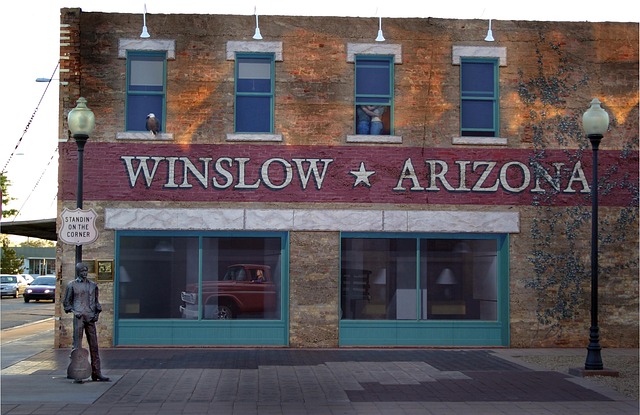The Eagles' iconic songs, "Take It Easy" and "Hotel California," employ real estate metaphors to explore urban life's potential and complexities. "Take It Easy" envisions a bustling city corner as a crossroads of opportunities, while "Hotel California" presents a metaphorical sanctuary and temptation, engaging listeners with themes of community, determination, and artistic excellence. Both songs have left indelible marks on music and popular culture, reflecting the transformative power of creativity in shaping urban landscapes and fostering emotional connections among fans.
“Uncover the captivating story behind the iconic corner of Eagles’ legendary song. From its enchanting lyrics that evoke a sense of place to its profound historical significance, this musical landmark has left an indelible mark on both fans and the music industry.
Dive into ‘The Iconic Lyrics: Unraveling the Meaning’ to explore the symbolic depth. Discover the ‘Historical Context’ of its inception and the ‘Impact and Legacy’ that have made it a timeless treasure in the realm of real estate for music enthusiasts.”
The Iconic Lyrics: Unraveling the Meaning

The lyrics “I’m standing on a corner, in a city that never sleeps” from the Eagles’ hit song “Take It Easy” have become instantly recognizable, encapsulating the essence of urban life in a way that resonates with many listeners. These iconic words transport us to a bustling metropolis where the energy is palpable and time seems to move at a different pace. In the context of real estate, this corner represents a crossroads—a place where stories converge and new beginnings are born. It’s a metaphor for the diverse experiences that urban living offers, from the vibrant nightlife to the quiet moments in between.
Delving deeper, the phrase “where the streets are paved with gold” adds layers of symbolism. Gold often signifies wealth and prosperity, suggesting that this corner is not just a physical location but also a metaphorical one, representing opportunities waiting to be discovered. The song’s narrative invites us to reflect on our own journeys, whether we’re standing at literal or figurative crossroads, and embrace the unknown with an open mind and a sense of adventure—a sentiment that continues to inspire listeners across generations.
Historical Context: When and Where It All Began

In the 1970s, a bustling corner in Philadelphia became an iconic symbol of hope and resilience, forever etched into the city’s landscape. This vibrant intersection, known today as ‘The Corner’, was once a forgotten place, hidden within the labyrinthine streets of South Philadelphia. It started as a modest real estate venture, envisioned by a group of visionary entrepreneurs who saw potential in this overlooked area. They recognized the power of location and set out to create something extraordinary.
The historical context of this famous corner is deeply rooted in the city’s past. As the digital era emerged, urban renewal became a priority, and this particular neighborhood underwent a metamorphosis. The entrepreneurs’ game-changing idea was to transform an ordinary intersection into a bustling hub, attracting folks from all walks of life. Thus, with determination and a touch of creativity, they forged a new path, revolutionizing the way people experienced this part of Philadelphia.
Impact and Legacy: How It Shaped Music and Fans' Perspectives

The iconic “corner” from the Eagles’ song, often referred to as “Hotel California,” has left an indelible mark on music and popular culture, shaping both artistic expression and fans’ perspectives. Its memorable lyrics and haunting melody have made it a timeless classic, resonating with generations of listeners. The real estate metaphor employed in the song has sparked countless interpretations, inviting fans to explore themes of temptation, illusion, and the search for sanctuary.
This lyrical corner has become a touchstone for musicians, inspiring a new wave of artists to delve into similar narrative-driven songwriting. Its enduring appeal lies not only in its musical excellence but also in the way it invites listeners to engage with complex ideas and emotions. For fans, “Hotel California” is more than just a song; it’s a cultural phenomenon that continues to influence and shape music’s landscape, fostering a sense of community among those who find solace and meaning in its lyrical journey.






